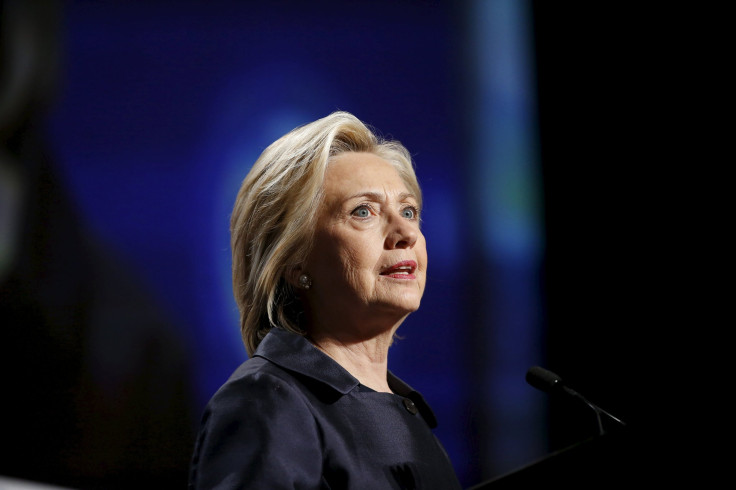Election 2016: Hillary Clinton Revisits Race Role In Campaign

WASHINGTON -- When Hillary Clinton last ran for president, there was no escaping the issue of race. She was running in the primary against the soon-to-be first black president. But instead of talking about race, Clinton stuck to trying to fend off accusations she was racist. Or her campaign was. Or statements her husband made were. At best, her strategy was more avoidance than engagement.
Eight years later, that has changed. Clinton is looking to make amends with black voters, many of whom felt she erred in her treatment of President Barack Obama during that primary. And the need for black voters to back her couldn't be any less critical. Her husband’s elections largely ignored them. He ran for president on a model that included winning moderate white voters. This time, Clinton is going to try to replicate the coalition built by Obama: minorities, women and young people. And black voters -- who voted in overwhelming numbers in 2008 and 2012 -- are going to be key to victory.
Clinton already has begun to demonstrate that talking about race and racism will be key to communicating with black voters. “Now, it’s tempting, it is tempting to dismiss a tragedy like this as an isolated incident, to believe that in today’s America, bigotry is largely behind us, that institutionalized racism no longer exists,” Clinton said in a speech Saturday in San Francisco, referring to last week's massacre at a historic black church in Charleston, South Carolina. “But despite our best efforts and our highest hopes, America’s long struggle with race is far from finished.”
A lot has changed in the eight years since Clinton last ran. Obviously, Obama was elected. And during his time in office the nation’s dialogue on race -- even if not by his own doing -- has come a long way. There was Trayvon Martin, which prompted a national discussion about racial profiling and gun laws. Then there was Michael Brown and the response of Ferguson, Missouri. There was #BlackLivesMatter and Eric Garner and Tamir Rice and the Baltimore riots.
And now there is Charleston. The shooting of nine black church members by a white man who made clear race was his motivating factor has prompted another national discussion, this time with the difficulties of presidential politics mixed in.
Clinton plans to talk about Charleston when she heads Tuesday to Florissant, Missouri, a small town only a few miles from Ferguson. It was there protesters took to the streets in the wake of the death of Michael Brown, a young black man who was killed by a white police officer. The killing prompted demonstrations across the country and began a renewed national discussion about the use of force by police officers, especially when it comes to black men. The campaign stop is not a coincidence. Missouri isn’t expected to be a competitive state for Democrats; there is little chance Clinton could win there. Clinton is going there with the express purpose of talking about race.
Lester Spence, a political science professor at Johns Hopkins University attributes the shift in political terrain to the Black Lives Matter and Occupy movements. “Eight years ago, Clinton felt she had to move to the right to attract white working class voters -- perhaps the 21st century version of ‘Reagan Democrats,’ ” Spence said. “Now? She has to move leftwards, talking about inequality in ways she never did, talking about racism in ways she never did. I'm not sure what the end result will be, whether such a strategy will be successful electorally, whether such a strategy will lead to legislative change.”
But while much has changed for Clinton as a candidate in eight years -- she doesn’t have to worry about saying anything offensive about her primary opponent this time -- wading into the issues of race still brings a hefty risk. “I think there are always risks when an American politician of any color discusses race,” said Jeff Smith, a professor of political science at The New School in New York City. “We see today the controversy around President Obama's invocation of the N-word in discussing the continued existence of discrimination -- and of course, he is black.”
Smith brings an additional perspective. For several years he represented in the state Senate a majority-black district comprised of communities neighboring Ferguson. “Not much has changed in Ferguson. There is a commission. It is studying the issue. Rebuilding appears to be slow,” Smith said. “I do know that a lot of simmering anger and frustration remains. It seems like other states passed more legislation in response to Ferguson [body cams, taking local prosecutors off of police-involved shootings] than Missouri did, though we did pass a bill that may begin to reform the Jim Crow-esque traffic court system. To the extent that Ferguson is not going to be a place that feels real positively about the promises made by a [white] politician, there are political/optical risks involved with respect to crowd comments.”
© Copyright IBTimes 2024. All rights reserved.






















